On 30 May, The Grocer will host a webinar entitled ‘Plastic and the Packaging Conundrum’, featuring speakers from Iceland, Coca-Cola, WRAP and the British Plastics Federation. To watch it and to post your questions to the panel, register at thegrocer.co.uk
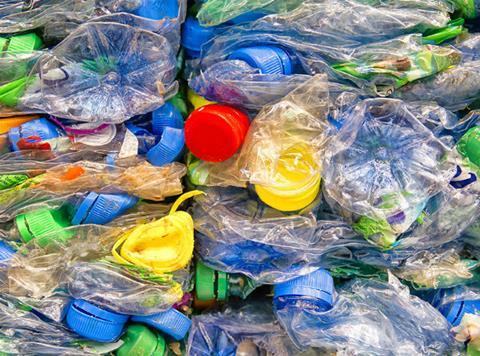
The plastic crisis has become such an emotive issue, a recent poll reported in The Grocer suggested people care more about the outcome than what happens after Brexit. Politicians have latched on to that, with the chancellor consulting on plans for taxes on single-use plastic products and a bottle deposit return scheme (DRS) being wielded by the environment secretary Michael Gove.
This week there finally came a collective response from the grocery industry, as Wrap spearheaded the launch of the UK Plastics Pact, a series of commitments by nearly 50 of the UK’s biggest retailers and suppliers as well as NGOs.
But are its new targets ambitious enough and can the industry put aside its competitive rivalry to find solutions?
Pact aims: by 2025
- Eliminate problematic or unnecessary single-use plastic packaging through redesign, innovation or alternative (re-use) delivery models.
- 100% of plastic packaging to be reusable, recyclable or compostable
- 70% of plastic packaging to be effectively recycled or composted, up from the current 45%
- 30% average recycled content across all plastic packaging, up from 6%
Source: Wrap
Wrap says it has had a huge response since The Grocer first revealed talks about the pact, then provisionally titled the Circular Plastics Commitment, were under way, in January. Companies signed up represent more than 80% of plastic packaging on products sold through UK supermarkets, despite what one source called the “extortionate” £20,000 annual fee.
However, while many of the biggest supermarkets have come on board, two retailers are notable by their absence. The Co-op, an outspoken supporter of DRS, claims it already has “stretching” targets that more than match those of the new pact.
The other, perhaps more notable absentee, is Iceland, which announced in January it would scrap all plastic from its own-branded products in the next five years. A snub from Iceland, which has paved the way in the war on plastic, was perhaps not the ideal start
Despite this, Wrap CEO Marcus Gover insists the response has been “fantastic”. “When you have 80% of products going through supermarkets signed up, the supply chain has to follow. I have met Richard Walker on more than one occasion and we still hope they may come on board later.”
He adds: “I’m pleased Iceland is trying a different approach. What it’s doing is ambitious and I hope it will lead to new breakthroughs with packaging. But if we want to do the right thing for the industry we have to deal with the whole system. Nobody can do it by themselves. Co-operation is key. The alternative is regulation and that is probably what will pick up those that don’t follow.”
“Clearly Iceland have gone for leadership on this issue,” says one rival supermarket source. “Well good luck to them, I suppose they have fewer lines and far less fresh food than others.
“We won’t criticise Iceland but going it alone is not the right way. There are so many challenges as to how you go about tackling this crisis, it needs everybody to come together and that’s why this is so important.”
Targets
It’s not just questions over unity the pact faces in its formative week but whether its targets go far enough. Most controversial is likely to be the opening line of its new commitment, which promises by 2025 to “eliminate problematic or unnecessary single-use plastic packaging through redesign, innovation or alternative (re-use) delivery models.”
Just what is defined as “problematic” and “unnecessary”, and how campaigners feel about the industry setting that definition under a voluntary scheme, are open to question.
“I worry that it will come across as flimflam,” admits one supermarket boss. “I fear people will look at these targets and see them as weak, whereas they are a recognition of how complex and difficult this issue is.”
The pact is also likely to prove contentious because Wrap’s vision recognises that plastic will likely play a key role for the foreseeable future, not least in preventing food waste and by extending the life of fresh products in packaging and transportation.
“Unless we are careful, food waste could go through the roof as we reduce plastic,” says the supermarket signatory, who cites cucumbers which can last an extra two weeks in plastic packaging. Deli ham has to be eaten within 2-3 days, whereas Wrap points out pre-packed ham with a protective atmosphere in the pack lasts up to 2-3 weeks.
Wrap says its initial focus will be on overcoming barriers to increasing the amount of recycled content used in new packaging, developing reusable packaging and working with partners to overcome the issue of unrecyclable black plastic.
Innovations
Longer term it hopes to build on innovations, such as the discovery of a new “plastic-eating” enzyme, dubbed ‘PETase’, which has the ability to break down the PET plastic used to make drinks bottles; while companies signed up to the pact are due to be split into different working groups to grapple the big issues.
“The enzyme discovery is getting a lot of interest from retailers. If that takes off the Iceland approach becomes totally redundant,” says one source. “We wouldn’t need to get rid of plastic. But we need time to develop these technologies.”
With DRS as well as taxation on the horizon, how long the government will give the industry to show voluntary action can work isn’t clear. Neither is Wrap’s ability to tackle the scale of the job, considering it was only in January that it was forced to make 15% of its staff redundant because of swingeing government funding cuts.
But Steve Malkin, founder of sustainability certification company The Planet Mark, says this week’s launch is a “pragmatic and exciting initiative”.
“While the timescale and targets could be more stretching, the potential impact is enormous and therefore fantastic news for sustainability.”
Plastic Planet action group co-founder Sian Sutherland describes the launch as a “huge step forward”.
So it’s been a good start in winning over campaigners. The public, and those plastic-hating Daily Mail readers, might be a different kettle of fish.
● On 30 May, The Grocer will host a webinar entitled ‘Plastic and the Packaging Conundrum’, featuring speakers from Iceland, Coca-Cola, WRAP and the British Plastics Federation. To watch it and to post your questions to the panel, register at thegrocer.co.uk







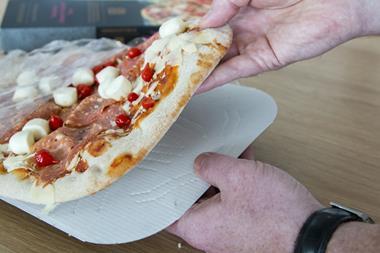
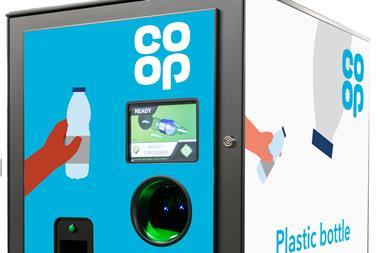
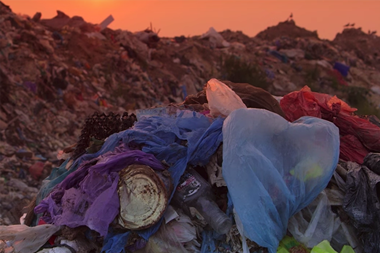
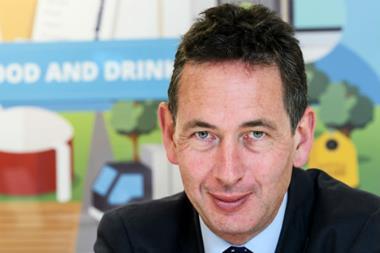
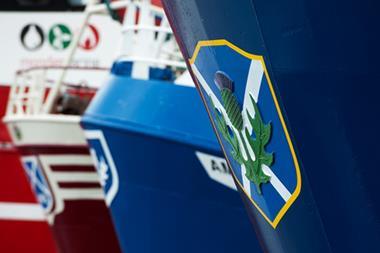






No comments yet